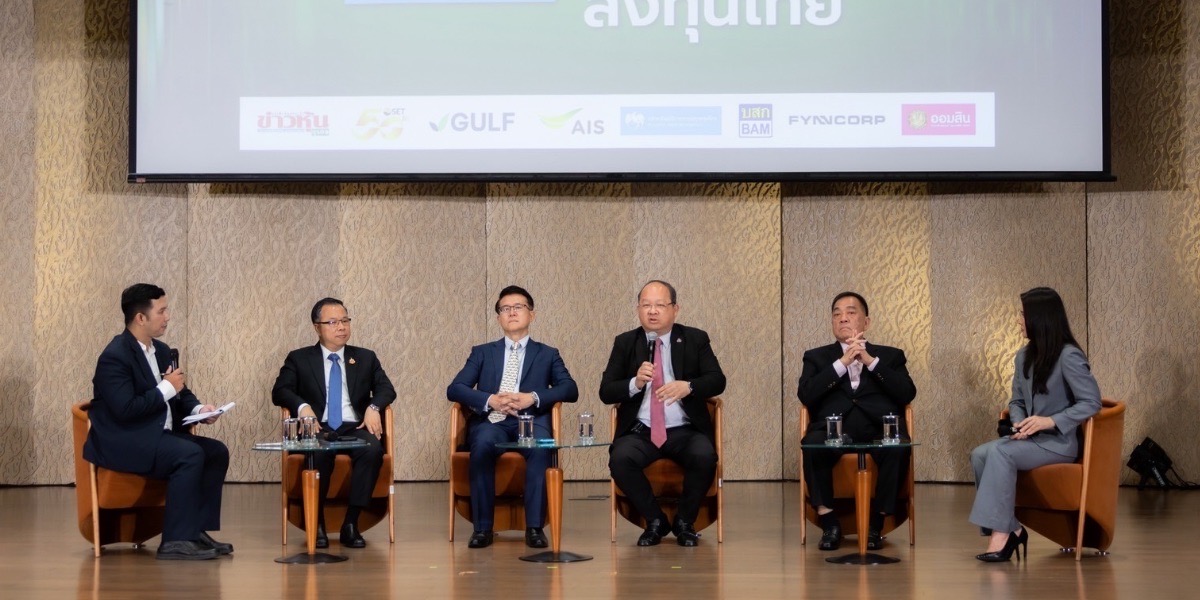Chanchai Sanguanwong, Director of Kaohoon Turakij, addressed in an opening remarks at Thailand’s Capital Market Forum 2025, held by Kaohoon Turakij on May 17, by highlighting prolonged downturn in the Thai capital market, which has lasted over two years, emphasizing the urgent need to restore investor confidence.
The forum serves as a crucial platform for gathering prominent figures from both public and private sectors to collaboratively seek solutions for the Thai capital market’s challenges.
Thai Deputy Prime Minister and Minister of Finance, Pichai Chunhavajira stated that Thailand’s economy has a path forward despite market fluctuations.
He outlined a strategy focusing on restructuring key sectors including the capital market, electric vehicles (EVs), the digital economy, logistics, and tourism. Pichai acknowledged challenges in traditional sectors like agriculture but highlighted opportunities in areas like enhancing EV manufacturing, data centres, and up-stream semiconductor production.
The minister also discussed infrastructure development, energy transition, and attracting foreign investment through potential changes to land use regulations, aiming to boost the economy and subsequently the capital market.
During the session “Opportunities and Challenges for Investment in Thailand,” Poj Aramwattananont, President of the Thai Chamber of Commerce, is urging the Thai government to expedite negotiations with the United States regarding impending tariffs. With a limited window of 50 days remaining under a temporary reprieve, there is concern that Thai exports to the US could be significantly disrupted.
Failure to secure an extension could lead to increased costs and a loss of a crucial market for Thai exporters. He added that it could take longer than 50 days to reach an official agreement with the U.S., but early actions and discussion could ease tension and open for another extension.
Meanwhile, Kriangkrai Thiennukul, President of the Federation of Thai Industries, addressed the challenges facing Thai manufacturing, particularly from technological advancements and geopolitical shifts. He stresses the need for Thailand to adapt quickly and proposes a four-pillar strategy to transform SMEs into Smart SMEs.
He highlighted the burden of outdated laws hindering economic progress and the opportunities present within current global uncertainty, drawing comparisons to reforms in the U.S., Vietnam, and South Korea.
Chongrak Rattanapian, President of Kasikornbank stressed the importance of balance for commercial banks, focusing on both lending responsibly and protecting shareholder interests even amidst slow economic growth.
The president of Kasikornbank highlights the bank’s efforts to support the economy and customers while managing risk and maintaining profitability, even when dealing with issues like non-performing loans and a downgraded GDP forecast.
Lastly, Secretary-General of the Board of Investment (BOI) in Thailand, Narit Therdsteerasukdi, highlighted the current trade tensions as a long-term context, thus, it is important to find support measures for long-term growth instead of a quick solution. He also suggested that Thailand can act as a bridge between major global powers.
To enhance Thailand’s investment potential, he recommends focusing on three key areas: developing human capital with high-tech skills, building comprehensive supply chains for new industries, and ensuring sufficient access to clean energy. Additionally, the BOI plans to address concerns about “product circumvention” in trade negotiations and is developing special measures to support Thai entrepreneurs, especially SMEs, in adopting technology and transitioning to future industries.





